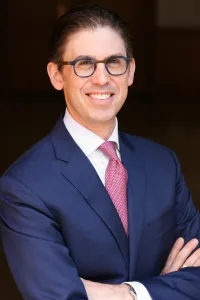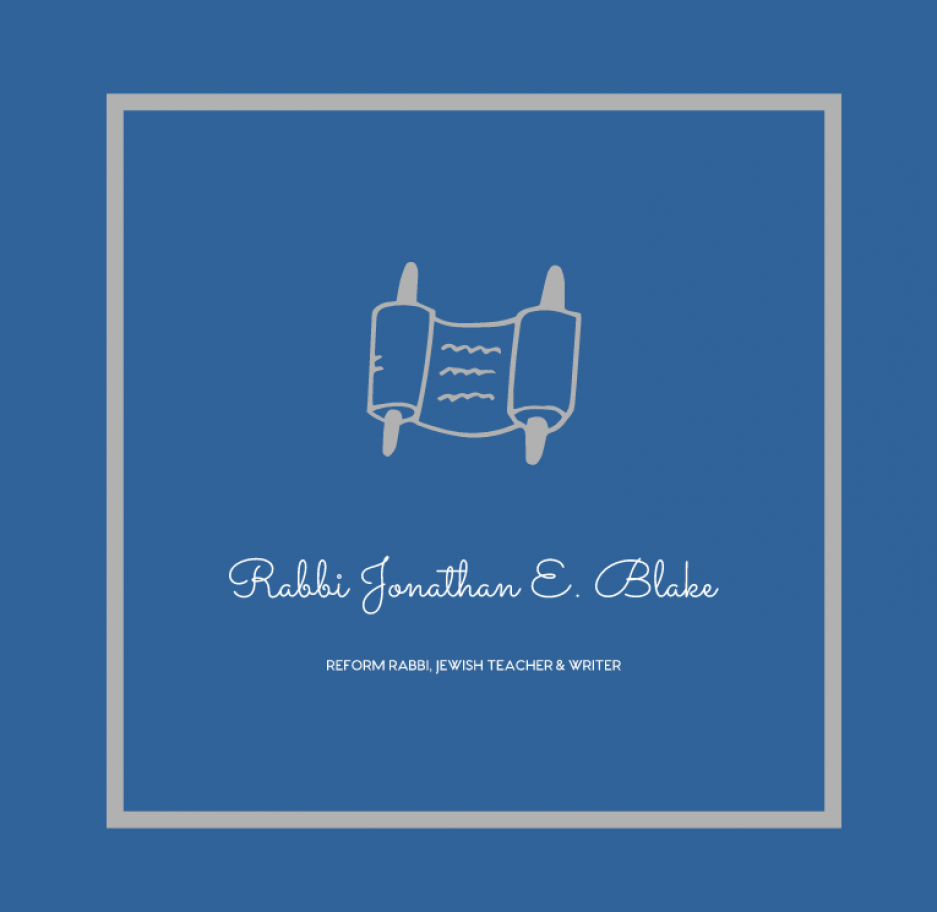7th Day Pesach 5784
An article by Rabbi Shlomo Brody published last week in Tablet magazine reviews the historical development of the Yizkor memorial service. As I read it, I remembered, vaguely, that I had written a term paper on this very subject for a liturgy course in rabbinical school. My area of academic concentration was Medieval Jewish literature which, despite every reasonable conjecture to the contrary, has proved relevant to my work as a congregational rabbi on more than one occasion.
I spent my HUC days poring over martyrdom texts written by Ashkenazi Jews between the 11th and 15th centuries. As a tradition that values human life above nearly all else, Judaism generally frowns on martyrdom, with a few notable exceptions.
The first arises after the failed Bar Kochba rebellion in the 2nd Century, when a self-styled Messiah (Shimon Bar Koziba, a.k.a. “Bar Kochba,” meaning “son of a star”) leads a doomed rebellion of Jews against the Roman Empire—the second failed revolt against Rome in 60 years—and a group of prominent leaders and teachers of Torah, most famously Rabbi Akiva, is rounded up by the Romans and executed to public spectacle. These martyrs are recalled in the Yom Kippur afternoon service, in a liturgy known as “Eleh Ezkra,” “These do I remember,” or as it’s called in English, “the Martyrology.” Judaism praises these martyrs for accepting death rather than desecrating the name of God, or so the reasoning goes.
The other exception arises starting in 1096, when Ashkenazi Jews (that is, Jews of the Rhineland, straddling modern-day France and Germany) were brutally attacked by Christian Crusaders on their way to “liberate” the Holy Land from Muslim “infidels.” In response to this trauma, Jewish writers wrote commemorative verses for martyrs who took their own lives rather than submit to the Christian marauders who inflicted physical, sexual, and emotional torment on their victims the likes of which none of us had seen in our lifetimes before October 7th, 2023.
During this period, numerous piyyutim, or devotional poems, were composed, lauding the martyrs, castigating the assailants, and testifying to the sanctification of God’s name for which these pious Jews had died. (To this day, the traditional term for martyrdom is Kiddush Ha-Shem, which means “sanctification of the Name.”) Similar poems proliferate after Jews are put to death (often by burning at the stake, sometimes whole communities at a time) for alleged crimes like murdering Christian children to use their blood for making matzo (the notorious “blood libel”).
A paucity of reliable eyewitness testimony or other contemporaneous artifacts suggests that the proportion of Jews who chose martyrdom over forced conversion or worse was actually very small; but in literature, if not in life, their numbers are exaggerated to match their esteem.
In Germany, a controversial custom arose in the wake of the attacks: writing down the names of the dead in a Memorbücher, or “Memory Book,” called Sefer Zikaron in Hebrew. As Brody points out, “The list of names was introduced with the prayerful wish: ‘May God remember [Yizkor Elohim].’ Alongside the martyrs, communal leaders or benefactors were listed. These names would then be read aloud in the community. Reading the book turned into a communal ritual.”
Several prominent rabbis initially opposed this practice, questioning its theological efficacy (could a prayer really effect divine mercy for the soul of the dead?) and even likening the practice to a kind of idolatry: worship of the dead. As often happens to rabbis in congregational life (I told you this stuff was relevant), the traumatized community’s need for a collective memorial practice overrode the rabbis’ theological objections, and became a cherished part of Jewish life, with names of the dead often inscribed on the walls of synagogues and in books of remembrance, and read aloud before Kaddish (all customs practiced at WRT).
In times of collective grief, new prayers were composed to commemorate the slain. One, called Av Ha-Rachamim (“Father of Mercy”), “beseeches God to remember ‘the pious, upright, and blameless, the holy communities, who laid down their lives for the sanctification of [the] Name.’ It further calls on God to take revenge for their spilled blood” (Ibid) and exact vengeance on their enemies. The prayer gained further traction when, in the middle of the fourteenth century, pogroms broke out against Jewish communities in the wake of the Black Plague.
When, in the middle of the 17th Century, the Cossack warlord Bogdan Chmielnizki led a massacre of tens of thousands of Polish Jews, another new martyrdom prayer entered the liturgy: El Malei Rachamim, “The God of Abundant Compassion,” a prayer asking God to shelter the souls of the righteous beneath the wings of the Divine Presence (Shekhinah) and to bind up their souls in the bonds of life everlasting”—words that are recited today at every Jewish funeral, but which began as a response to communal trauma.
Taken together, these prayers and poems and lists of the dead gradually coalesce into the Jewish practice of Yizkor, the memorial service that will eventually be adopted into the liturgy for Yom Kippur and the Shalosh Regalim, the three pilgrimage Festivals of Pesach, Shavuot, and Sukkot. So we offer Yizkor prayers four times a year. (By “we,” I mean Ashkenazi Jews; to this day, Sepharadim do not have a communal Yizkor, because the precipitating catastrophes for this liturgy did not happen in Sephardic lands.)
And, for the most part, our Yizkor, though a communal experience, is centered around the emotional and spiritual needs of the individual mourner. You will find in our Siddur a wide array of poems, both traditional and modern, and formulas for saying Yizkor, with the emphasis on personal bereavement.
And yet, today is also the first Yizkor since the last Yizkor, which was recited collectively throughout the Jewish world on October 7th and 8th, 2023—on the Festivals of Shemini Atzeret and Simchat Torah—the conclusion of Sukkot.
One of the great ironies of human life is that we experience mourning as the loneliest of ordeals when in fact it is the most universal. It is a cruel trick of Nature that the human psyche has evolved to respond to the death of a loved one as uniquely shattering. “No one can know my pain,” we think; “no one understands what this feels like.” This was not just someone’s husband, wife, parent, child, or friend: this one was mine, and now, I am utterly alone. Such is the force of death and such the devastation of loss. And still, the force of death is a mirror image of the force of life even as grief is reflected love.
Judaism, in its compassionate wisdom, saw fit to merge the intensely personal experience of grief with the intensely Jewish need to be in community, and vice versa. Yizkor: what began as collective remembrance in the face of unfathomable communal trauma also became the sacred container for every individual bereavement. In so doing, Yizkor makes plain its meaning: you are not alone.
We need Yizkor this year, more than ever. We need to be together in our grief and heartbreak, for the trauma of October 7th and the trauma of every day since. By way of giving us some space for memory—alone and together—I will share this poem by the Adi Keissar, an acclaimed Israeli poet whose family arrived as refugees from Yemen beginning in 1882 on her father’s side, and, on her mother’s side, in the wake of the expulsion of Yemen’s Jews in the 1950’s.
I’m not sure
if I could go back to life this time
A morning run, bike trip, party
without the face of the dead
haunting me
I’m not sure
if I could come back alive this time
An empty baby bed, a blanket
coloured red.
What I’m sure of
Automatic weapons, fire and smoke
shattered windows and a broken door
sirens going up and down
ashes and wreckage
The world is burning
and I am the flames
The hours blended
also, the days
At night came the dreams
and the mosquitos
to suck my skin
As from a hidden signal
swirled around me
all night
buzzed in the darkness
asked for my blood.
All through the night
the air stood still
between me and the world
not going in and not coming out
In the morning I opened a window
the sun was shining in the sky
the silence filled the empty streets
I’m not sure
if I could ever hear silence
that doesn’t hide a disaster within.
אוקטובר\ עדי קיסר
אֲנִי לֹא בְּטוּחָהּ
שֶׁאַצְלִיחַ הַפַּעַם לַחְזֹר לַחַיִּים
רִיצַת בֹּקֶר, טִיּוּל אוֹפַנַּיִם, מְסִבָּה
מִבְּלִי שֶׁיָּבוֹאוּ אֵלַי פְּנֵי הַמֵּתִים
אֲנִי לֹא בְּטוּחָה
שֶׁאַצְלִיחַ הַפַּעַם לַחְזֹר בַּחַיִּים
מִטַּת תִּינוֹק רֵיקָה, שְׂמִיכָה,
בְּצֶבַע אָדֹם.
בְּמָה אֲנִי בְּטוּחָה:
בַּיְּרִיּוֹת עַל אוֹטוֹמָט, בְּאֵשׁ וּבֶעָשָׁן
בְּחַלּוֹנוֹת מְנֻפָּצִים וּבְדֶלֶת שְׁבוּרָה
בְּאַזְעָקוֹת עוֹלוֹת וְיוֹרְדוֹת
בְּאֵפֶר וּבַהֲרִיסוֹת
הָעוֹלָם בּוֹעֵר
וַאֲנִי הַלֶּהָבוֹת.
הַשָּׁעוֹת נִדְבְּקוּ זוֹ בָּזוּ
גַּם הַיָּמִים
וּבַלַּיְלָה הִגִּיעוּ הַחֲלוֹמוֹת
וְהַיַּתּוּשִׁים
לִמְצֹץ אֶת עוֹרִי
כְּמוֹ מִתּוֹךְ אוֹת סָמוּי
כָּל הַלַּיְלָה
זִמְזְמוּ בַּחֹשֶׁךְ
בִּקְּשׁוּ אֶת דָּמִי.
כָּל הַלַּיְלָה עָמַד הָאֲוִיר
תָּלוּי בֵּינִי וּבֵין הָעוֹלָם
לֹא נִכְנַס וְלֹא יוֹצֵא.
בַּבֹּקֶר פָּתַחְתִּי חַלּוֹן
הַשֶּׁמֶשׁ זָרְחָה בַּשָּׁמַיִם
הַשֶּׁקֶט עָמַד בָּרְחוֹבוֹת הָרֵיקִים
אֲנִי לֹא בְּטוּחָה
שֶׁאַצְלִיחַ פַּעַם לִשְׁמֹעַ שֶׁקֶט
שֶׁלֹּא מַחְבִּיא בְּתוֹכוֹ אָסוֹן.

